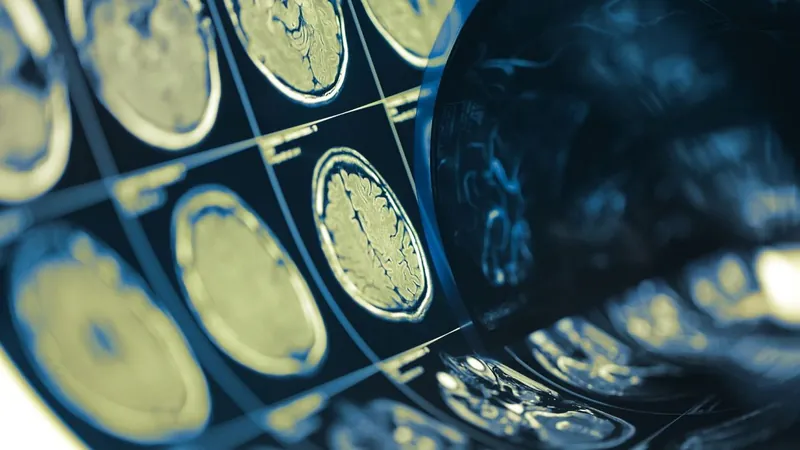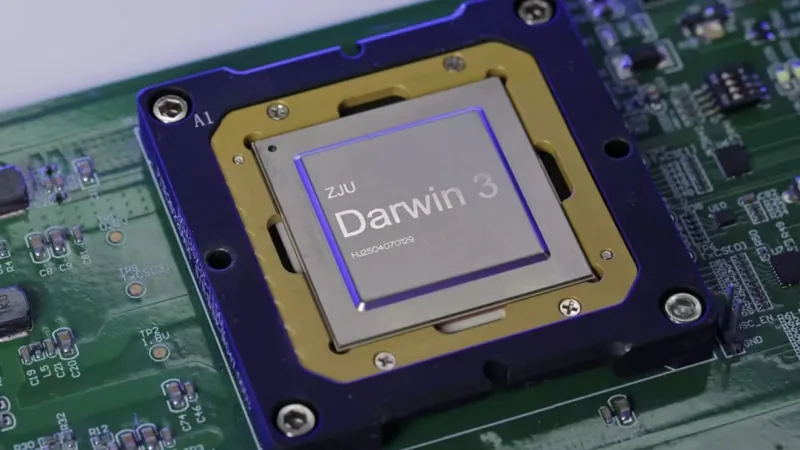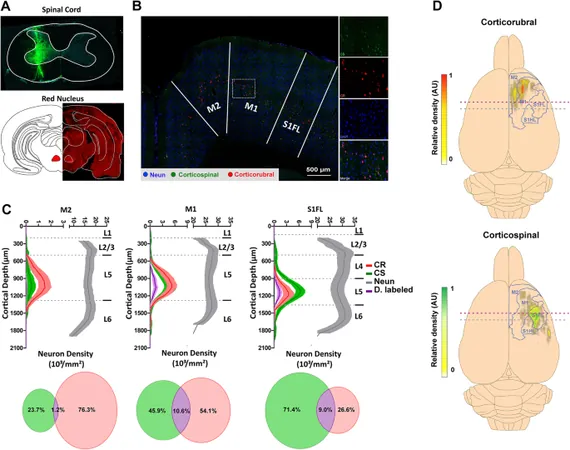
Unlocking Minds: Revolutionary Brain-Chip Reads Thoughts with 74% Accuracy!
2025-08-15
Author: Emily
Groundbreaking Discovery in Mind-Reading Technology
Imagine a world where your thoughts can be translated into text—sounds like science fiction, right? Well, it's becoming a reality! Researchers at Stanford University have developed a pioneering brain implant capable of interpreting inner thoughts with an astonishing accuracy of up to 74%.
How It Works: The Science Behind the Technology
This experimental brain-computer interface (BCI) connects the nervous system directly to external devices, enabling users to control them with mere thoughts. This incredible innovation holds the potential to significantly enhance the independence of individuals with disabilities.
A key player in the BCI arena is Elon Musk's Neuralink, currently in trials to test its safety for those with mobility impairments. But Stanford's research has opened new doors, potentially revolutionizing communication for those unable to speak.
Decoding Thoughts: A Leap in Understanding Brain Activity
In a landmark study, the researchers gained insights into what brain activity resembles when a person thinks about speaking. Erin Kunz, one of the lead researchers, expressed excitement over this breakthrough: “This is the first time we’ve managed to understand what brain activity looks like when you just think about speaking.”
The Intricate Process of Thought Interpretation
Working with four participants, the team implanted sensitive microelectrodes in the motor cortex—the brain's speech center—allowing them to measure neural signals during attempts to speak or mere visualizations of speech. The dual action activated similar brain regions, revealing astonishing possibilities for decoding thoughts.
By training artificial intelligence models on this data, the team achieved a significant breakthrough: translating imagined sentences with up to 74% accuracy!
Enhanced Security for Inner Speech: A Fascinating Test
In another phase of the study, participants were tasked with thinking a password before the BCI could decode their thoughts. Astoundingly, it recognized the phrase “Chitty chitty bang bang” with around 99% accuracy!
The Road Ahead: Exciting Future Prospects
Though these brain chips currently require strict protocols to prevent misinterpretation of thoughts, researchers are optimistic. Frank Willett, another author of the study, emphasized the potential for BCIs to one day facilitate fluent and natural communication, giving hope to many—"This work gives real hope that speech BCIs can one day restore communication that is as fluent, natural, and comfortable as conversational speech.”









 Brasil (PT)
Brasil (PT)
 Canada (EN)
Canada (EN)
 Chile (ES)
Chile (ES)
 Česko (CS)
Česko (CS)
 대한민국 (KO)
대한민국 (KO)
 España (ES)
España (ES)
 France (FR)
France (FR)
 Hong Kong (EN)
Hong Kong (EN)
 Italia (IT)
Italia (IT)
 日本 (JA)
日本 (JA)
 Magyarország (HU)
Magyarország (HU)
 Norge (NO)
Norge (NO)
 Polska (PL)
Polska (PL)
 Schweiz (DE)
Schweiz (DE)
 Singapore (EN)
Singapore (EN)
 Sverige (SV)
Sverige (SV)
 Suomi (FI)
Suomi (FI)
 Türkiye (TR)
Türkiye (TR)
 الإمارات العربية المتحدة (AR)
الإمارات العربية المتحدة (AR)